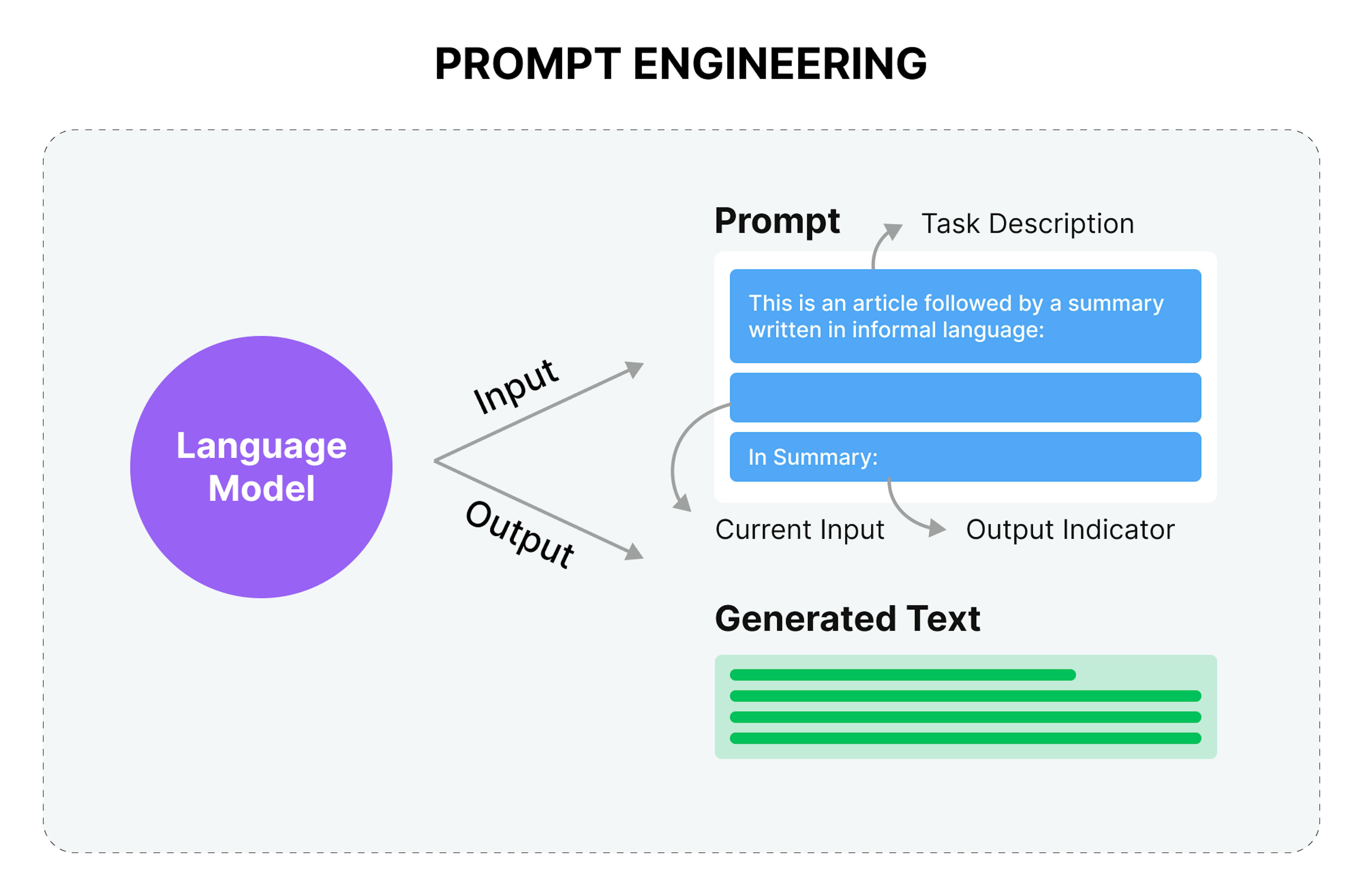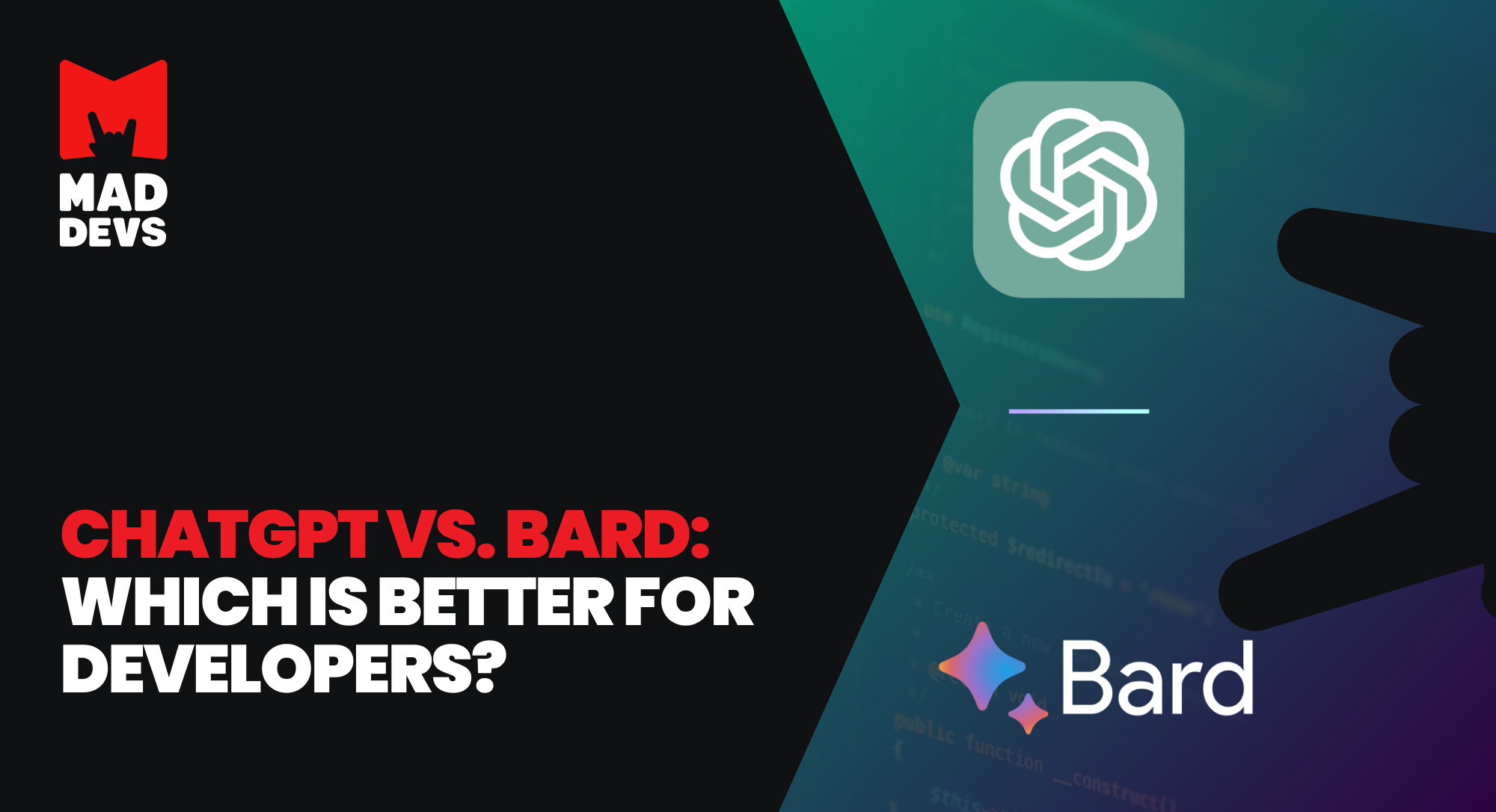AI's incredible evolution has ushered in a new era where powerful language models like ChatGPT transform how we work, learn, and access information.
But here's the twist: to unlock AI's full potential, you need to ask the right questions. AI can't read the mind, despite its unbelievable capabilities. Moreover, it won't reveal the intricate details you seek unless you provide clear boundaries and guidelines within your query. This has given rise to AI prompt engineering—a promising career path in high demand as AI continues to shape our world.
In this article, we dive into the world of prompt engineering and know how to find your place in it if you are considering a change of career.

What is prompt engineering
Prompt engineering lies at the core of shaping interactions with generative AI tools. These interactions can take the form of conversations, as commonly seen in tools like ChatGPT. However, they can also be programmatic in nature, involving prompts integrated into code. Think of it as a contemporary version of API calls, where you're not just invoking a function in a library, but rather engaging in a conversation with a vast, powerful language model.
Moreover, high-quality prompts play a vital role in training AI models. Prompt engineering involves refining and structuring input data for AI, ensuring it's chosen and organized to be as useful as possible.

A prompt engineer, sometimes referred to as a "dialog engineer," is responsible for crafting and fine-tuning prompts used with various AI models such as OpenAI's ChatGPT, DALL-E-2, Google's Bard, Microsoft's Bing, and many others.
What does a prompt engineer do
Prompt engineer's job involves:
- Writing clear prompts: creating straightforward prompts for AI development and testing.
- Collaboration: working with teams like content creators and data analysts to use large databases effectively.
- Improving prompt clarity: ensuring prompts are clear and concise for desired AI results.
- Performance monitoring: checking how well prompts work and finding ways to make them better.
- Prompt optimization: tweaking prompts to make AI models work better.
- Staying updated: keeping up with the latest tech developments, especially in AI.
What are the types of guiding language models
Prompts serve various purposes and come in different types based on structure and intent. Here are some common prompt categories:
Instructional prompts
These prompts offer clear and specific instructions to guide the language model's response. They outline tasks, formats, or limitations.
For example: Write a 500-word article on the benefits of regular exercise.
Contextual prompts
They provide relevant background information to orient the language model's response. They set the stage for generating context-aware outputs.
For example: As a restaurant critic, provide a review of the new Italian restaurant in town.
Question prompts
These types of prompts explicitly ask a question, prompting the language model to provide an answer or explanation. They are commonly used in question-answering tasks.
For example: Why did the Roman Empire decline and fall?
Incomplete sentence prompts
Incomplete sentence prompts present a partial sentence, and the language model is expected to complete it. These prompts can elicit creative or imaginative responses.
For example: If I could travel back in time, I would visit...
Multi-turn dialogue prompts
Multi-turn dialogue prompts simulate conversational interactions by offering a sequence of prompts and responses. This prompt type enables language models to engage in back-and-forth exchanges, making it valuable for chatbots and virtual assistants.
For example:
User: "What's the weather like today?"
Assistant: "Today's forecast is sunny and 25°C. How can I assist you further?"
Domain-specific prompts
These prompts are tailored to specific subjects or fields, providing special instructions or vocabulary relevant to that domain. They help language models generate more accurate and specialized responses.
For example: Summarize the latest research findings in the field of quantum physics.
Now that we've elaborated on the knowledge base about prompt engineering, we can move to skills and details about prompt engineering careers.
Essential skills for a prompt engineer
Here are the key required skills for a prompt engineer role.
| HARD SKILLS | |
|---|---|
| Programming proficiency | AI platform development and automating tasks, proficiency in languages like Python, and familiarity with APIs, operating systems, and CLIs. Specific requirements may vary depending on the company and AI platform. |
| Prompt experience | Experience in crafting and testing AI prompts. Familiarity with popular AI models like ChatGPT can be advantageous for candidates in this field. |
| AI technology knowledge | A solid grasp of skills in NLP, LLMs, ML, and AI-generated content development (especially if they are involved in coding or AI platform development). |
| Data analysis experience | Should be skilled in data analytics, including structured and unstructured data sources analysis, to identify biases and assess AI-generated content quality. |
| SOFT SKILLS | |
|---|---|
| Strong communication skills | Effective verbal and written communication is essential. |
| Problem-solving | Identifying and addressing challenges in prompt design and AI response optimization is a critical skill. |
| Analytical skills | Understanding of data analysis to evaluate prompt performance, assess data quality, and analyze AI-generated outputs. |
| Ability to collaborate effectively with cross-functional teams | Proficiency to work with cross-functional teams, including developers, content creators, and data analysts. |
Qualifications for a prompt engineer
Consider these educational qualifications:
- Deep knowledge of various AI models, their strengths, weaknesses, operations, and infrastructure is crucial.
- A degree in related fields focusing on artificial intelligence can be beneficial.
- Sometimes, a related or transferable college degree in computer science can be asked.
The salary outlook for prompt engineers
According to Glassdoor, the estimated total pay for an AI Prompt Engineer in the United States area is approximately $131,192 per year, with an average annual salary of around $104,049. In the United Kingdom region is approximately £63,400 annually, with an average yearly salary of £53,501.
India Today reports categorizes engineer salaries by experience level. Junior engineers (0-2 years) earn Rs 3-6 lakhs annually, mid-level engineers (2-5 years) make Rs 6-12 lakhs per year, and senior engineers (5+ years) can earn over Rs 12 lakhs, with potential for Rs 20 lakhs or more based on skills and company policies.
As per Freelancermap, freelancers in the AI Prompt Engineer industry typically charge hourly rates ranging from $83 to $105.
Steps to become a prompt engineer
Identify the skills. Begin by identifying the essential skills required for prompt engineering, which include linguistic proficiency, programming knowledge, data analysis skills, and an understanding of AI technologies.
Formal education. Consider pursuing formal education in computer science, linguistics, artificial intelligence, or a related field. A bachelor's degree can provide a strong foundation for your career.
Gain experience in big data. Gain experience in working with large datasets and understanding data structures. Big data skills are valuable in prompt engineering.
Learn programming languages. Familiarize yourself with programming languages, focusing on languages commonly used in AI and NLP, such as Python.
Build a portfolio and resume. Create a portfolio of prompt engineering projects and a well-structured resume to showcase your skills and experiences.
Build a professional network. Connect with professionals in the field through online platforms, attend conferences, and join relevant communities to build a professional network.
Prepare for the interview. Prepare for interviews by studying prompt engineering concepts, AI models, and common interview questions in the field.
Land a new job. Start applying for prompt engineering positions on job boards, company websites, and through your network. Tailor your applications and resumes to match the job requirements.
The future of prompt engineers
In the ever-evolving realm of AI, particularly in prompt engineering, we're witnessing exciting developments:
- Adaptive prompting
Researchers are delving into methods enabling models to generate prompts based on context autonomously. This innovation reduces the reliance on manual input, making AI systems more adaptive and user-friendly. - Multimodal prompts
With the advent of multimodal AI models capable of processing both text and images, prompt engineering evolves to encompass visual cues. This expansion broadens the possibilities for AI interaction and content generation. - Ethical prompting
As AI ethics gains prominence, there's a heightened emphasis on crafting prompts that uphold fairness, transparency, and bias mitigation principles. Ethical considerations are becoming integral to prompt engineering, ensuring responsible AI use.
Mad Devs' recommendations for career growth with the new company/role
In this article, we discussed the desire to change careers. As a bonus, we're providing you with a brief list of red flags for determining whether a company is a good fit for your future job and whether a candidate is the right fit for you:
| Red flags when hiring juniors | Red flags for juniors when choosing a company |
|---|---|
|
|
To wrap up
Prompt engineers play a vital role in shaping how humans interact with AI, and it's a field that keeps evolving. To start a successful career in this area, focus on improving your language and technical skills, get relevant education and experience, and stay updated with the dynamic AI world.
Take the first step, build your expertise, and begin your journey toward becoming a skilled prompt engineer. You can be part of the exciting future of AI.
Our team at Mad Devs is here to help you harness AI's power and create customized solutions. Feel free to reach out and schedule a consultation with our experts. We're ready to assist you.












